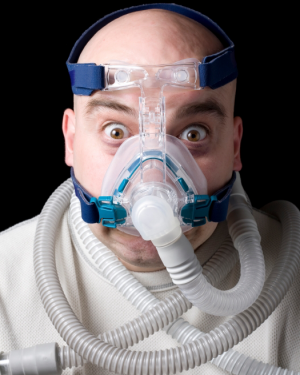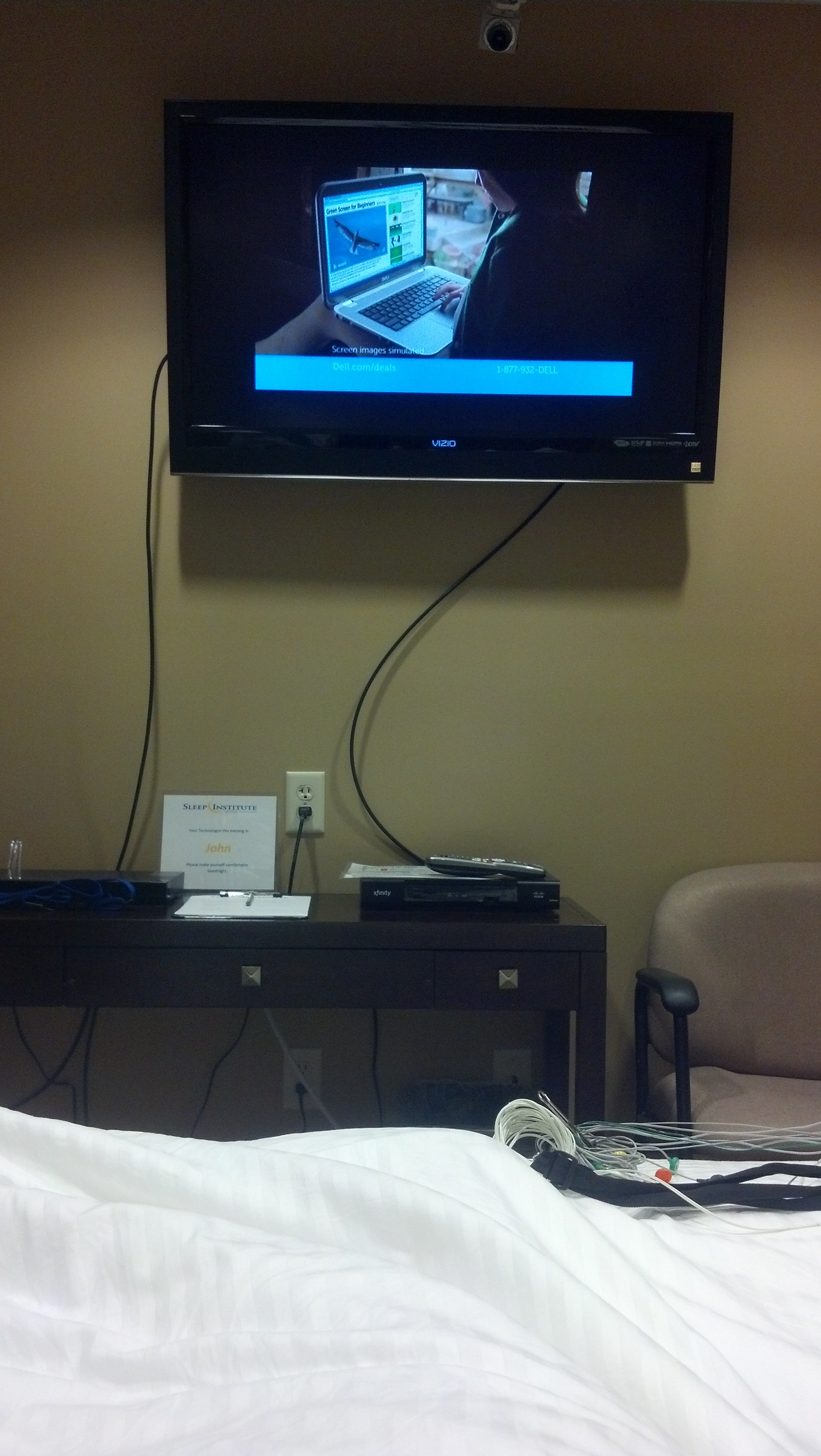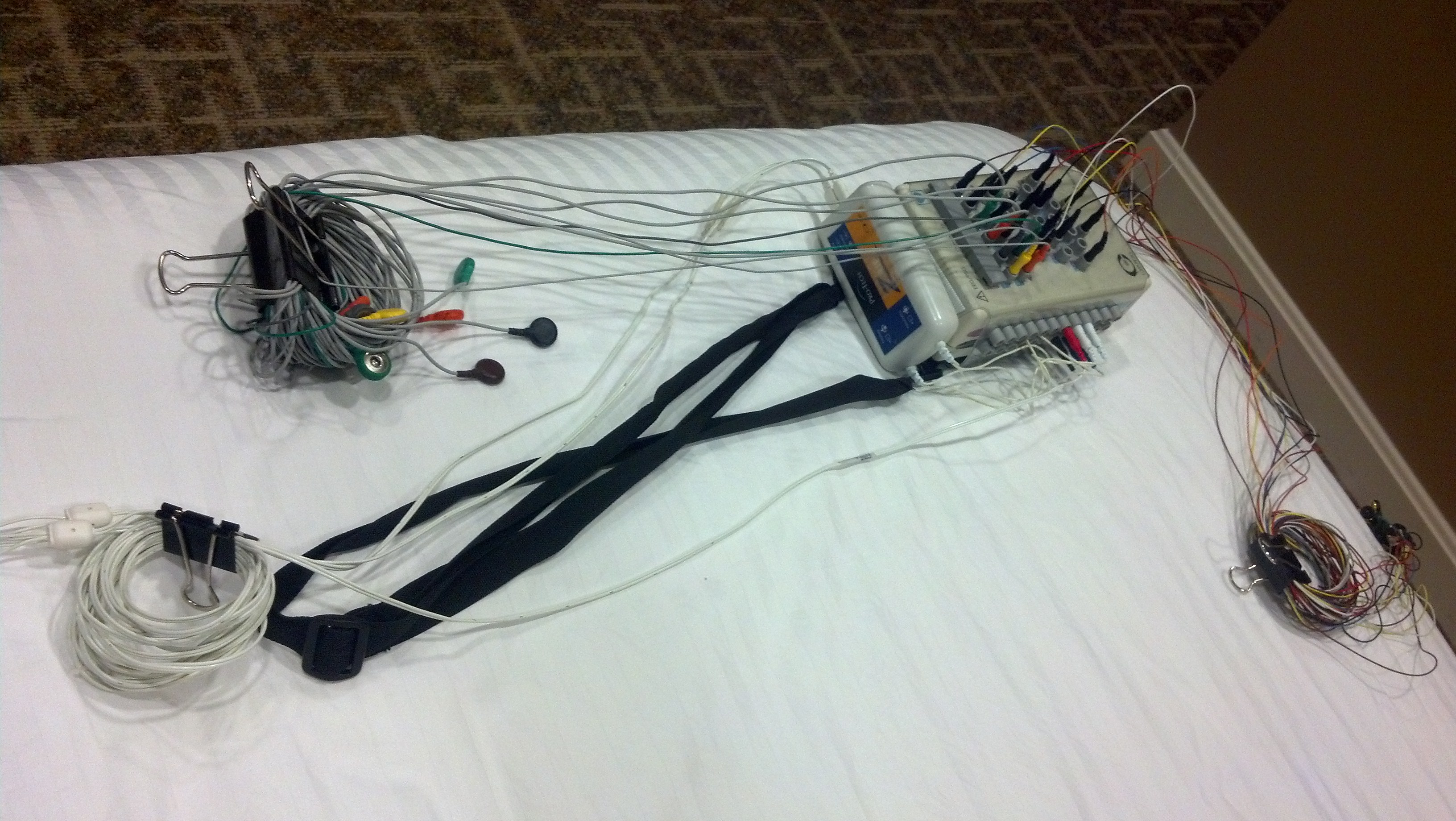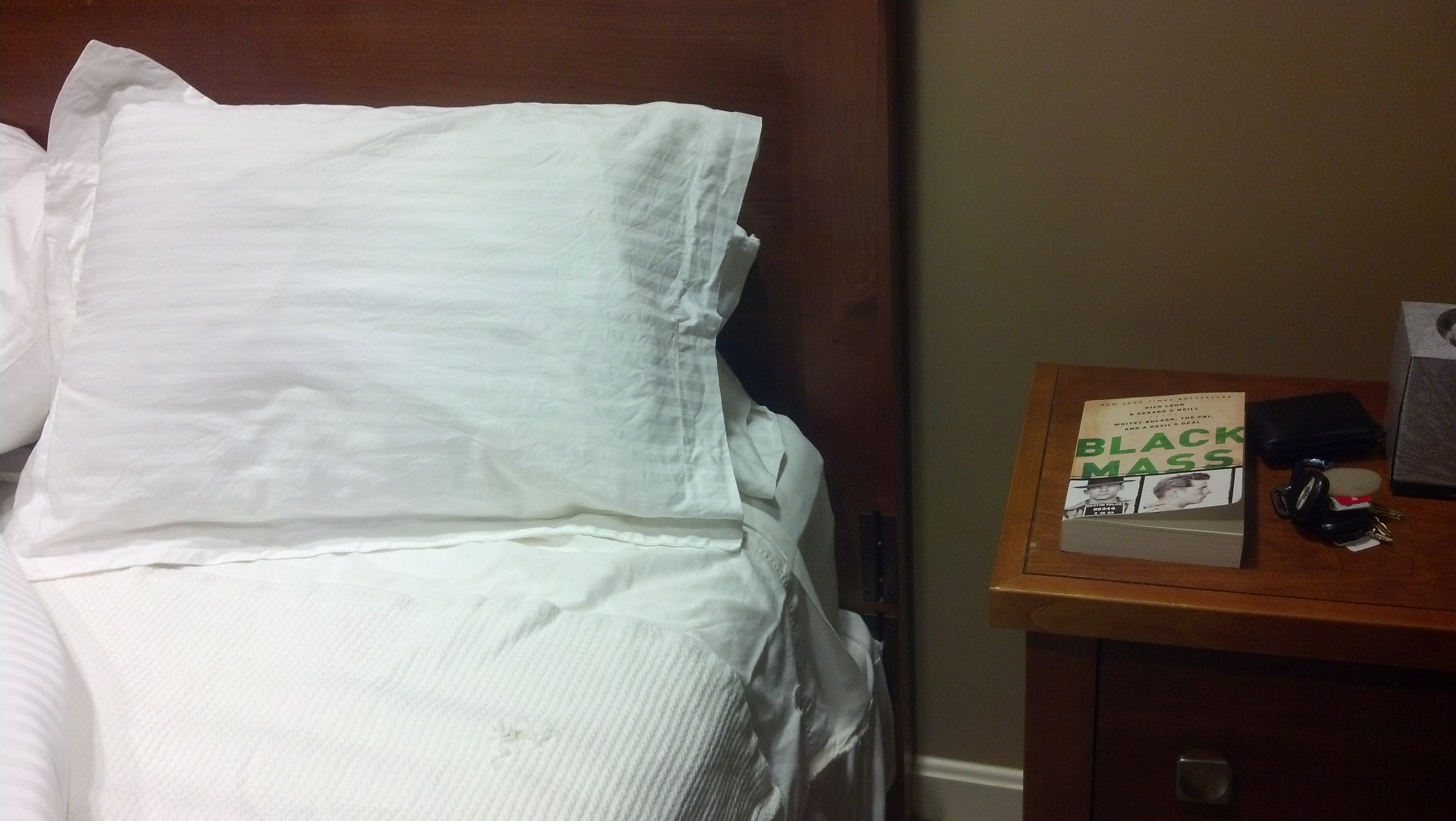According to the results of my sleep study, I have something called sleep apnea. I stop breathing for a few seconds or a little over a minute and then snore ferociously as the breathing kicks back in. I’m told mine is moderate to severe.
Scary, you say? Not really.
Mood music:
I know a few people with this condition, including my father. It afflicts people from all walks of life: the fat, the thin, the short, the tall, the young and the old. In my case, the root cause is a nose and sinus cavity full of bad plumbing. My snout is almost always clogged, and if I’m trying to breath through the nose everything stops until the mouth breathing takes over.
The doctor showed me a computer screen full of squiggly lines that measured brainwave activity, blood oxygen levels, REM vs. light sleep, etc. Throughout the night the study was done, the squiggly lines flattened out. Most of the time it was for 8–15 seconds. In a few cases, it lasted more than a minute. Wherever the breathing flatlined, another column of lines showed my blood oxygen levels dipping below the preferred level.
It explains a lot.
That it instigates my snoring is obvious. But I’ve always had a tendency to get sleepy in the middle of the day, and I admit to occasionally falling asleep while staring at my laptop. It also explains why I’m usually out cold within minutes of lying down and opening whatever book I’m reading. I’m never adequately rested, so my body sneaks in whatever rest it can throughout the day.
By extension, it’s almost definitely making any depression I get along the way worse than it would otherwise be. I know I had a shitty night’s sleep Saturday, and I spent much of yesterday cranky as a result.
I’ve had two surgeries in recent years to deal with the snoring. One was to correct a deviated septum (I’m convinced the procedure only made it worse). The other was to snip off the uvula. Both times they also installed pillar implants in the soft palate to prop things up. Being overweight is often cited as a root cause, and there’s surely some of that in my case. But I’ve also lost a ton of weight over time, especially since kicking flour and sugar.
The solution to all this?
I’m going to endeavor to drop another 10 or 15 pounds because that can’t hurt. But the bigger solution is that I’m getting a machine to help keep the airways open at night. The continuous positive airway pressure (CPAP) machine uses mild air pressure to keep an airway open. The devices are smaller than they used to be. Mine will be about the size of a tissue box.
I’m excited to see what a full night of uninterrupted sleep is like. Despite the breathing trouble, I’ve managed to function at a vigorous level. With better sleep, I’m hoping to push it to 11.




